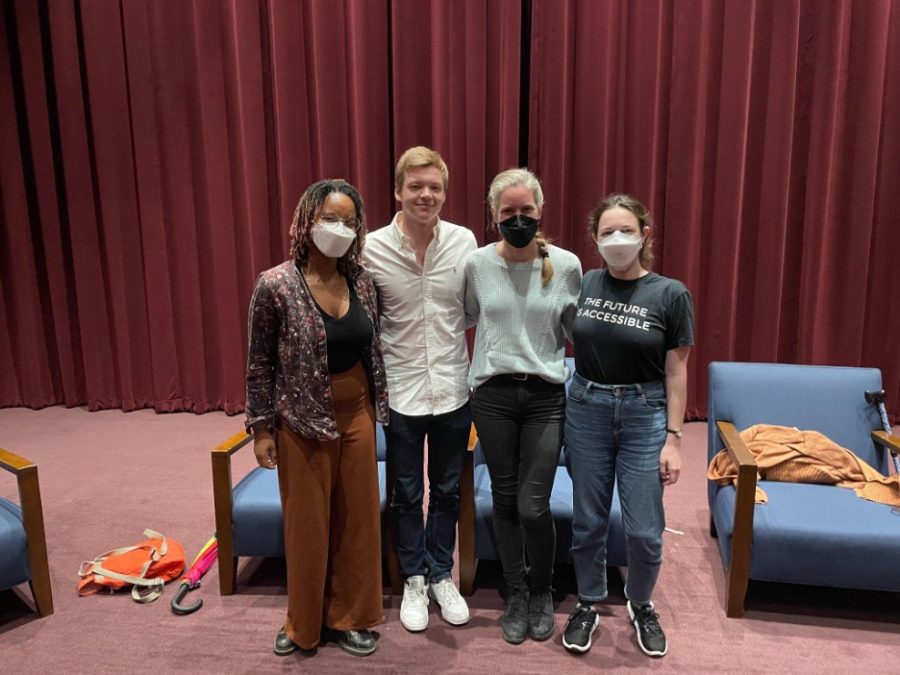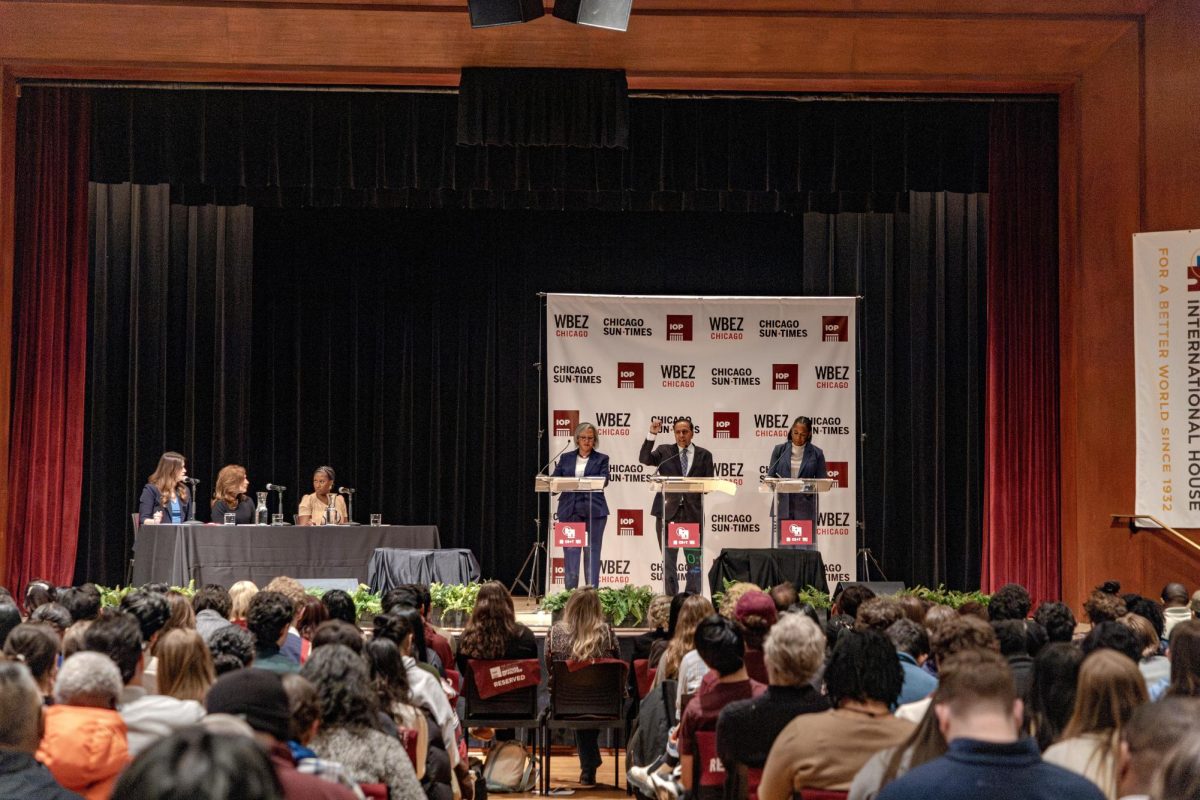Students for Disability Justice (SDJ) hosted a screening and panel discussion of the documentary Crip Camp at Doc Films on Saturday, May 6. Crip Camp tells the story of Camp Jened, a summer camp for disabled people, and the campers’ activism to pass legislation such as Section 504 of the Rehabilitation Act of 1973, as well as the Americans with Disabilities Act (ADA). The panel was composed of fourth-year Hannah Brody, biology Ph.D. candidate Grace Schulz, and alum Britt Belwine (A.B. ’20). The discussion was moderated by fourth-year Max Kay.
The speakers highlighted many of the ways that the University’s campus is inaccessible to people with disabilities. Shulz gave the example of the Biological Sciences Learning Center, where the central lecture hall on the first floor is accessible to enter but not to get to the front of the room, which excludes a person with a disability from presenting, teaching, or lecturing.
“My favorite argument [from the administration] is that the buildings are old and it’s expensive to retrofit them, but the new ones are just as bad,” Shulz said.
In many cases, buildings on campus are not compliant with the ADA, a federal law that prohibits discrimination on the basis of disabilities and requires buildings to accommodate people with disabilities. Schulz said that she has filed monthly requests for Facilities Services to change the non-ADA-compliant door handles in Abbott Hall for multiple years. She said no one has responded to her request or taken steps to fix the door handles.
“I think they’ve muted my account,” Schulz laughed.
The speakers described their experiences attempting to get accommodations through Student Disability Services (SDS) as expensive in terms of both time and money. Students must meet with their doctors to acquire the appropriate documentation for their disability and then wait for the application to be approved by SDS. Shulz noted that applying for accommodations through SDS can take up to six weeks, which is followed by the time it takes for professors to implement those accommodations.
“By then, the quarter is over. Sometimes students with disabilities don’t even register, because it’s not worth it,” Shulz said.
When SDS does approve a student’s request for accommodations, the panelists observed that professors respond with a range of attitudes and have discretion in implementing the accommodations.
“There’s definitely a burden of proof on the student,” Kay said. “They’re already dealing with the stress of being in college and then have to deal with being a young person and being unwell.”
The discussion turned to possible reasons why the University is slow or unwilling to accommodate students with disabilities.
“[The administration] is really decentralized and they take pride in how decentralized it is,” Schulz said. “Every department has their own dean…so at the end of the day, it’s never any one person’s problem. It’s on purpose. The decentralization makes it so that no individual person needs to feel bad about saying no. The University as a whole says no until the student leaves or graduates.”
When asked what they believed should be the first thing for the University to change, the panelists brimmed with ideas.
“Hire more people in the SDS office…more people who are disabled,” Belwine said. “It would be great to have disabled people in the office to advocate for students.”
Schulz suggested the creation of a disability cultural center on campus. She also advocated for the creation of an office to oversee accommodations for graduate students, who make up more than half of UChicago students and are not covered by the SDS office.
Kay added, “The school isn’t ADA-compliant in the same way a public school would have to be, so they should start with that.”
All of the speakers agreed that real change will only come when society’s attitude towards people with disabilities changes.
“People don’t see your humanity—they don’t see you as an equal,” Belwine said. “People are really discouraged from speaking about disabilities. And a large part of that is from the stigma: the stigma around how disabled people are treated around the world. We need people with disabilities to feel comfortable talking about their experiences.”
Belwine shared an anecdote of a small way she has raised awareness of accessibility issues on campus. Noticing many bikes chained to handrails meant to help people with disabilities walk up ramps, she began to leave Post-it notes on them asking the owners to not block the handrails in the future.
Belwine encouraged others to do the same: to act as allies to those with disabilities. Despite the many challenges she has faced, Belwine remained cheerful.
“Disabled people are so freaking creative. You develop a certain open-minded and innovative approach to the world,” she said.















